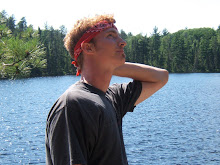For those of you who don't know, or might not guess, Utah is a desert state so there isn't a lot of fresh produce that can grow in the area. Everything that we get there is shipped from other states, or even other countries. When those fruits and vegetables are picked, they are often taken before they are ripe to help preserve the fruit longer for the duration of it's travel to Utah. My dad, being used to fruits and vegetables that actually tasted good, wasn't too excited to feed us the flavorless produce at our local Albertsons (the grocery store). So needless to say, I grew up on a steady diet of casseroles, potatoes, fast food, and brownies.....mmmmm.....brownies. So that's my food tree ancestory in a nutshell.
Where was I? Oh yes, buying organic food. The list that I mentioned isn't necessarily concerned with buying the organic foods that are the least harmful to the environment. It's more concerned with buying foods that are least harmful to your body. As I found out, much of the produce that we buy in our groceries stores (the flavorless, but really colorful and chemically/genetically enhanced produce) is full of stuff that farmers use to help keep their crops healthy. Pesticides and fungicides are probably the most common.
Not everything on that list is produce however. Meat and milk are both on the list not because of the product that we get from cows, but because of the food that the cows eat. These docile bovines consume tons of food per day, meaning that the food that they are usually fed is whatever happens to be cheapest (corn is an especially common food that they are fed, even though it isn't easily digested by cows, but that's a story for another time). The website that I've been referring to says the following about meat:
"Raising animals with conventional modern methods often means using hormones to speed up growth, antibiotics to resist disease on crowded feed lots, and both pesticides and chemical fertilizers to grow the grain fed to the animals. Additionally, it takes many times the water and energy to raise one meal's worth of meat than it does one meal's worth of grain."So I'll update you more in the future on how all this is going for me. I'll also be keeping track of cost as I purchase organic foods throughout the semester and reflecting on how all of this is impacted by our faith life. Stay tuned. It should be interesting!
